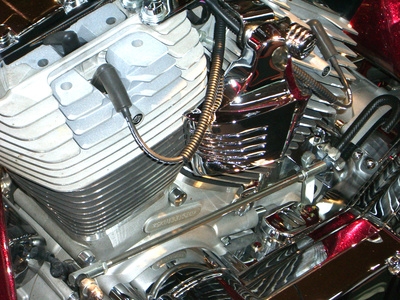
The average motor oil today comes with a standard mix of detergents, additives, corrosion preventers and a number of other chemicals. All of these elements are expected to help engines work better and longer. However, not all mechanics subscribe to the theory of motor oil containing detergent.
Motor oil detergents were introduced in the 1950s. The concept adjusts for the failings of oil filters by attaching to those particles too small to get caught in filters. Instead the detergent holds the particles in the oil so they don't deposit on engine parts and cause hot spots. If the oil is used for too long, however, it can't do its job. Thus, flushing out old oil regularly helps maintain the cleaning process and the benefit of the detergents.
Given the emphasis on keeping engines clean, most dealers and mechanics use motor oil with detergent. It can be a challenge to find a place that does oil changes with non-detergent motor oils. Many of the common non-detergent oils are instead used in appliances that run on gas, such as lawnmowers and tractors. Two-stroke oil would be another common non-detergent oil, mainly used in engines in motorcycles and watercraft.
Motor oil with detergents include chemicals that aid in trapping particles, dispersant additives that break down coagulating sludge in channels, rust preventers and alkaline to offset the acidic nature of oil in general as it begins to oxidize.
Those who are used to working with motor oil can tell which type the motor oil is by its appearance. Frequently, because of the elements included in the oil to catch particles, the liquid appears darker. Non-detergent oil appears clearer and lighter since it is straight oil.
Retail additives in addition to what already comes in motor oil, detergent or non-detergent, are questionable at best with regard to benefits. While these products come with quite a bit of marketing, they generally just add more stuff in the oil, negating the effect of the detergent already included. As these added particles clump up, they can cause blockages in oil channels and lines.